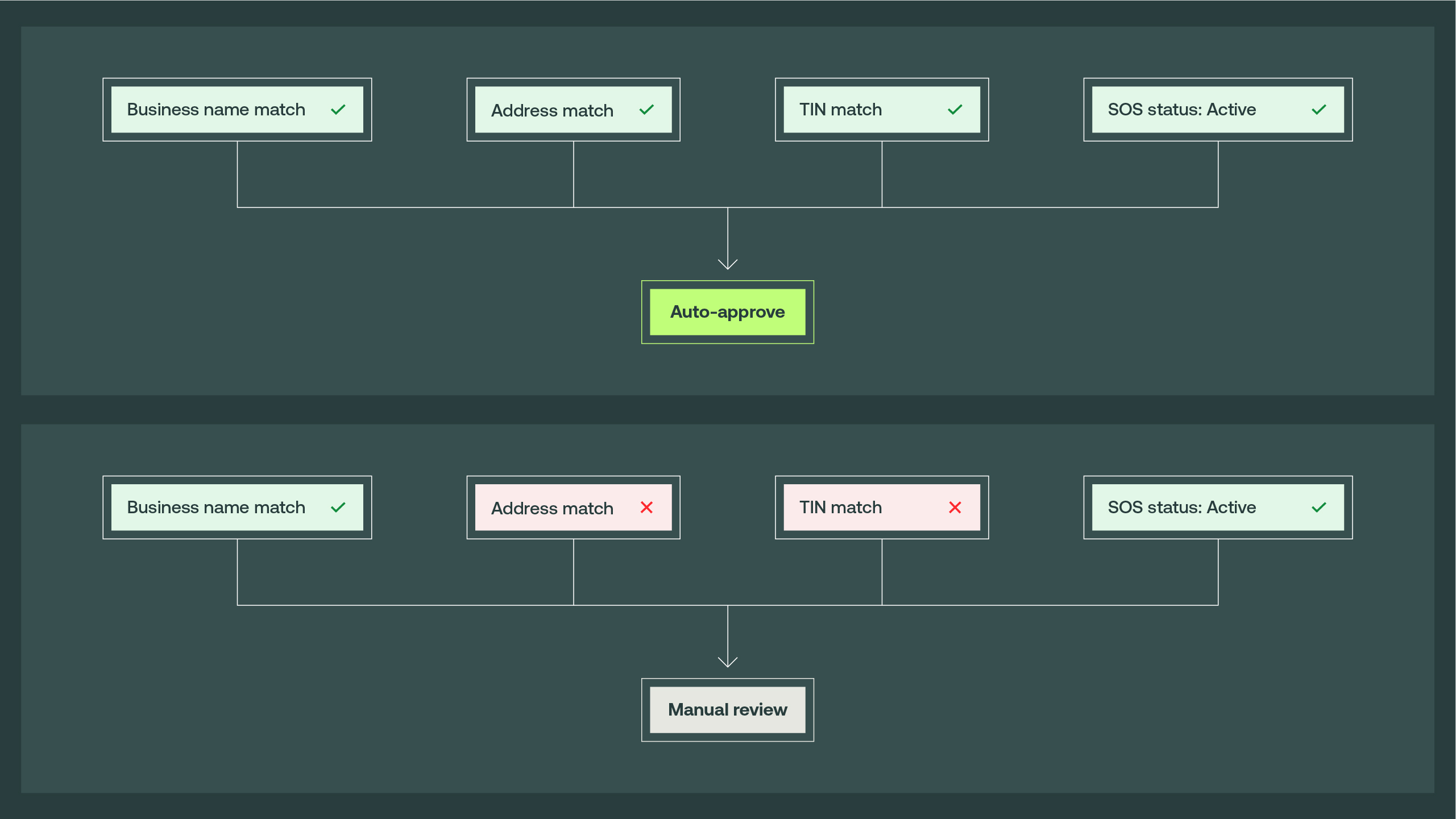Meet Checkr
Traditionally conducting employee background checks was confusing, expensive, and impossible to scale. And they were often unfair, designed to “screen out” rather than “screen in.”
The legacy background check system required pulling information from various state, local and federal data sources, many of which are hard to access and vary in data quality. As a result, companies were unsure whether their background checks were surfacing the most important information, causing them to miss out on great talent.
Today, San Francisco-based Checkr combines machine learning, AI, and human expertise to make background checks fast, accurate, and fair. Job seekers now have greater access to employment, and employers can be certain all pre-employment screenings, from background and credit checks to drug and occupational health screenings, are thorough and complete.
As Checkr grew, more small businesses began adopting the service. They soon learned that verifying the identity of their new small business customers posed a unique challenge.
The Challenge
Checkr is subject to regulatory compliance because they deal with highly sensitive personal and financial information. Section 604 of the Fair Credit Reporting Act (FCRA) requires that anybody ordering a background check must have a permissible purpose for doing so. Checkr is committed to only working with companies that demonstrate a clear business purpose for conducting background checks.
Just determining if Checkr could take on a new business customer quickly became a huge headache. As Checkr implemented KYB processes, they learned that the data they needed to determine the legitimacy of a business was spread across thousands of disparate government portals. Inaccurate or incomplete data would create significant impacts on their onboarding processes. Even when a business was registered, business names and addresses provided to Checkr by commercial customers didn’t always 100% match up to registration data. This then required timely and costly manual reviews.
Almost all the information we need for making an onboarding decision is available somewhere, but good luck finding it.” — Mike Spolarich, Software Engineer at Checkr
At the time, Checkr’s customer support team was parsing and analyzing complex customer onboarding data. They had to compare data sources of varying quality which could be time consuming and tedious to look up, meaning the process of enabling a new account could take days in the most difficult cases.
Checkr first tried out another vendor for their customer due diligence. But working with that vendor proved to be difficult due to data reliability and support issues. Checkr’s customer support team was still spending hours double checking and verifying that vendor’s data. They realized they needed a better solution that would let them automate the CDD review and approval process, especially in the simplest cases.
According to Spolarich, Checkr first began scoping out how to do this project themselves, estimating months of engineering and implementation time. And that didn’t account for the ongoing costs of testing, maintaining and updating their data sources and auto-decisioning rules.
To satisfy their internal and regulatory requirements when onboarding new customers, Checkr needed:
- To understand how verifying a small business identity differed from their current enterprise customers and ensure they were verifying accurately
- To create auto-decisioning rules to save time when it came to making the right business customer onboarding decisions
- To decrease the need for manual review and minimize the likelihood of human error when making onboarding decisions
The Solution: Middesk Policies
That’s when Checkr turned to Middesk.
Middesk provides data on 100% of registered businesses in the United States sourced from government entities. Middesk data is delivered through proprietary data pipelines and is the freshest on the market, in many cases enabling companies like Checkr to verify a business that incorporated yesterday. But Checkr needed more than just data.
Middesk’s Policies allowed Checkr to configure their own specific compliance and onboarding requirements for auto-decisioning. They set auto-approve and auto-reject logic to convert legitimate business customers more quickly, all while staying on top of internal and CIP requirements by automating compliance.

Policies removed the burden of time-consuming manual reviews, meaning analysts no longer have to manually approve or deny potential commercial customers. The customization of Policies will allowed the Checkr team to evolve their auto-decisioning criteria without needing to lean on engineering to make adjustments—something both teams are excited about.
With Middesk Policies, part of our Verify product, you can set up your own custom onboarding workflows to auto-approve low-risk customers whose submitted information matches what's in MIddesk's authoritative databases.

With this level of customization and enabling auto-approval, you only need manual oversight on the issues that require it, and can save countless hours and costs within your customer onboarding process.
The Outcomes
Spolarich estimates that adopting Middesk's Policies saved the company—in the least—a month of engineering and implementation time, as well as ongoing customer support figuring in the hundreds of thousands of dollars.
Other Middesk customers have seen a 31% lift in auto-approvals using tools like Policies. Speak to the experts at Middesk today and set up a demo to see exactly how they did it, or check out our on-demand demo of Middesk Verify right here.
Middesk has taken the brunt of the compliance workload off of our customer support team so they can continue helping our customers with timely resolutions to any issue they encounter with their background checks” — Mike Spolarich, Software Engineer at Checkr

.webp)




